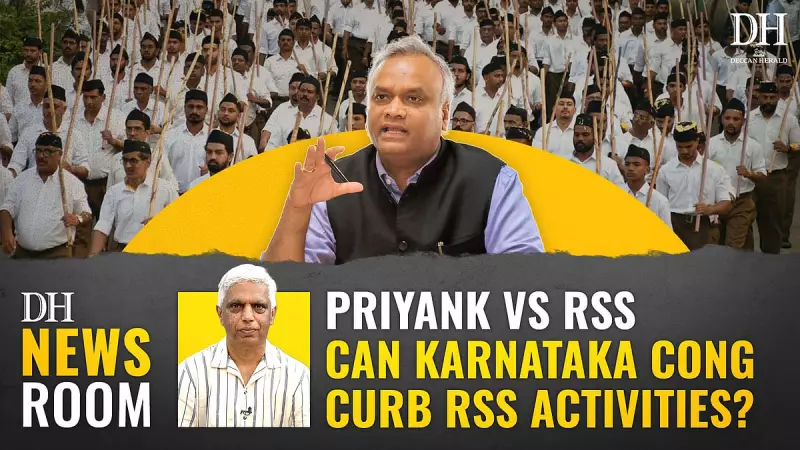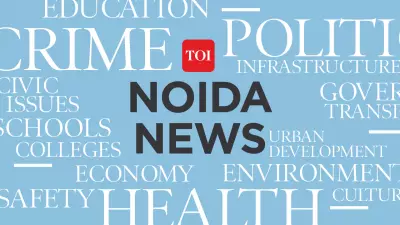
In a bold political maneuver that's sending shockwaves across the nation, Karnataka Minister Priyank Kharge has launched a vehement campaign against the Rashtriya Swayamsevak Sangh (RSS), demanding its prohibition and urging other Congress-ruled states to join the crusade.
The Political Firestorm Ignites
The controversy erupted when Kharge, serving as the Minister for Information Technology and Biotechnology, didn't mince words in his condemnation of the RSS. Drawing historical parallels, he pointed to the organization's alleged involvement in Mahatma Gandhi's assassination as grounds for the ban, creating immediate national headlines.
Strategic Messaging to Congress Allies
What makes this development particularly significant is Kharge's strategic outreach to other Congress-governed states. The minister is actively pushing for a coordinated political response, suggesting that multiple states should simultaneously pursue legal and political avenues to challenge the RSS's existence and activities.
The Historical Context Argument
Kharge's argument rests heavily on historical precedent. He emphasizes that the RSS was previously banned following Gandhi's assassination in 1948, and he believes current circumstances warrant similar action. This historical reference adds substantial weight to his political offensive.
BJP's Counter-Offensive
Unsurprisingly, the Bharatiya Janata Party (BJP) has launched a fierce counter-attack. BJP leaders are accusing Kharge and the Congress party of pursuing divisive politics and attempting to polarize voters ahead of crucial elections. The political temperature in Karnataka has skyrocketed as both sides dig in for what appears to be a prolonged ideological battle.
The Larger Political Implications
This confrontation represents more than just another political skirmish. It signals a potentially significant shift in the Congress party's strategy toward right-wing organizations. Kharge's aggressive stance could set a precedent for how opposition parties engage with the Sangh Parivar in the coming electoral battles.
What This Means for Indian Politics
The minister's bold move comes at a critical juncture in Indian politics. As states prepare for upcoming elections and national political alignments take shape, Kharge's anti-RSS campaign could influence political discourse across multiple states. The response from other Congress-ruled states will be closely watched as an indicator of the party's unified strategy.
Political analysts suggest this could mark the beginning of a more confrontational approach by the Congress party toward organizations it perceives as threats to secular democracy. The coming weeks will reveal whether other states join Karnataka's lead or whether this remains an isolated political stance.





